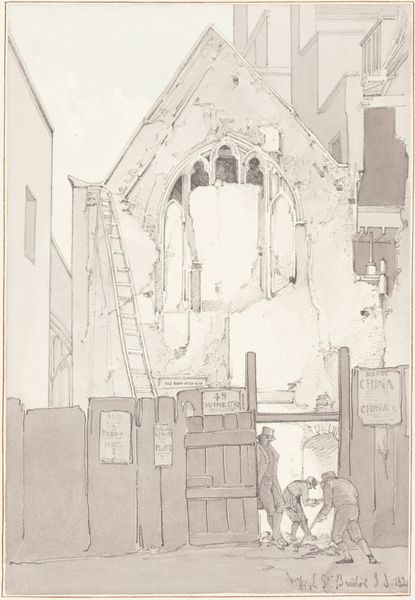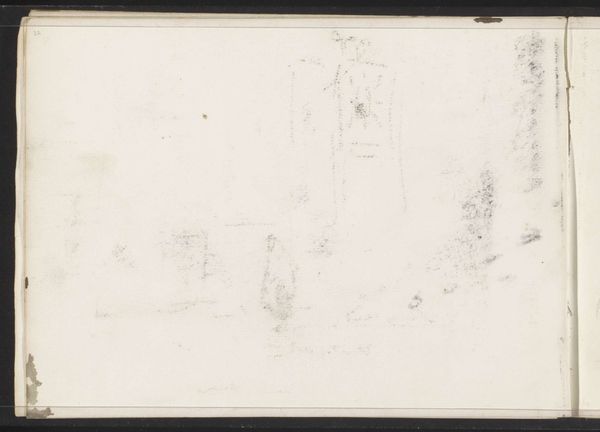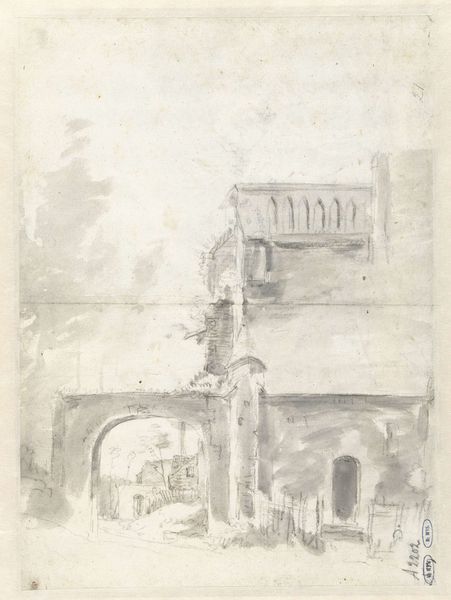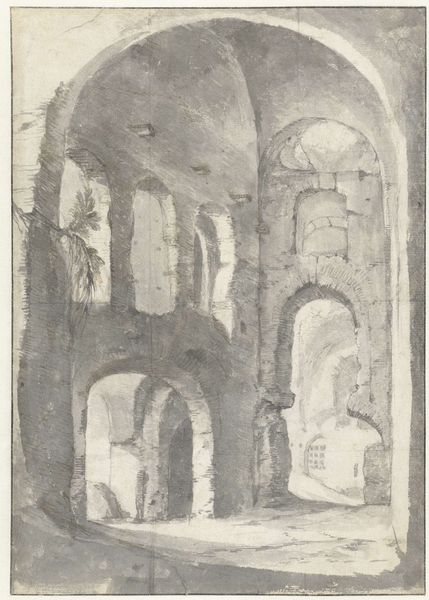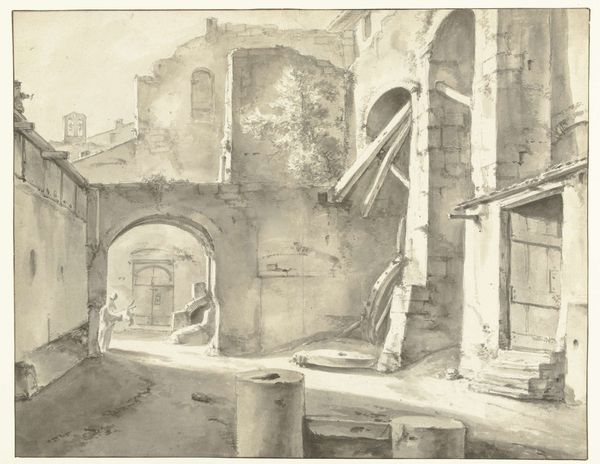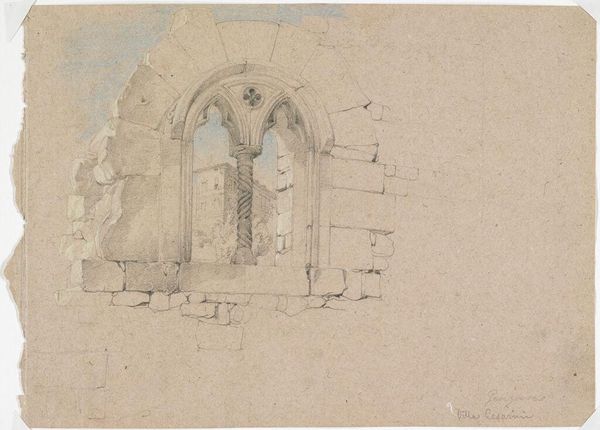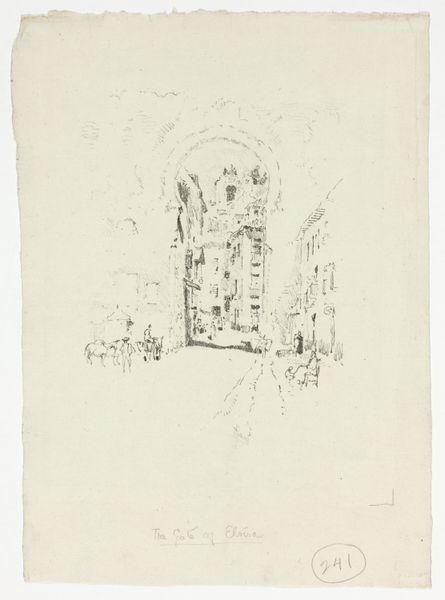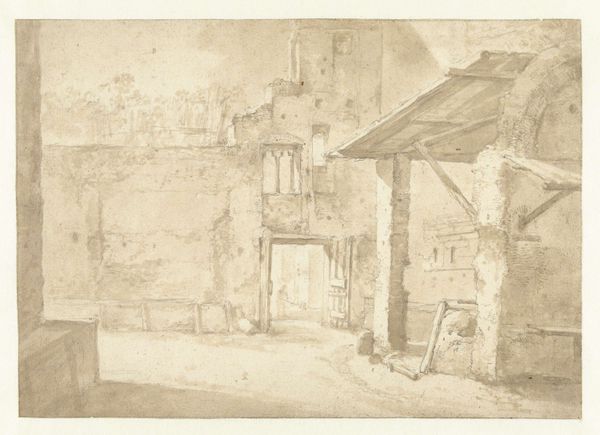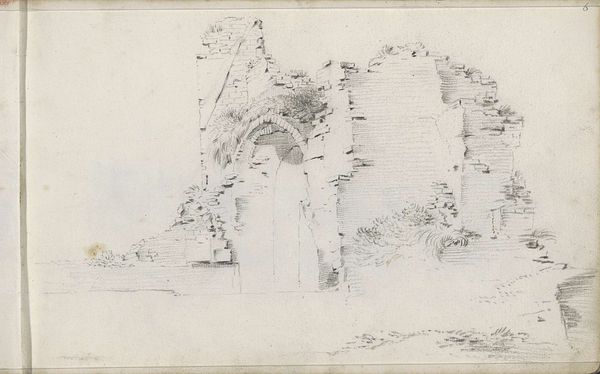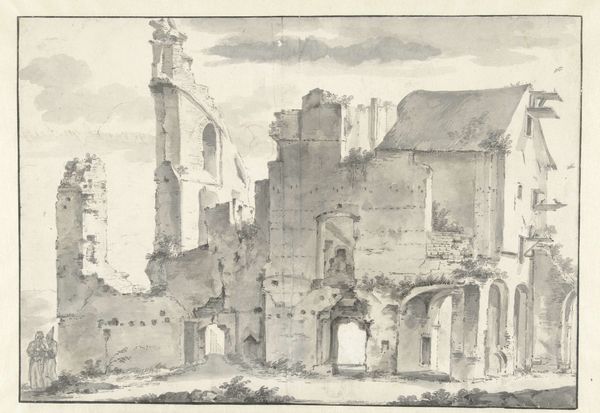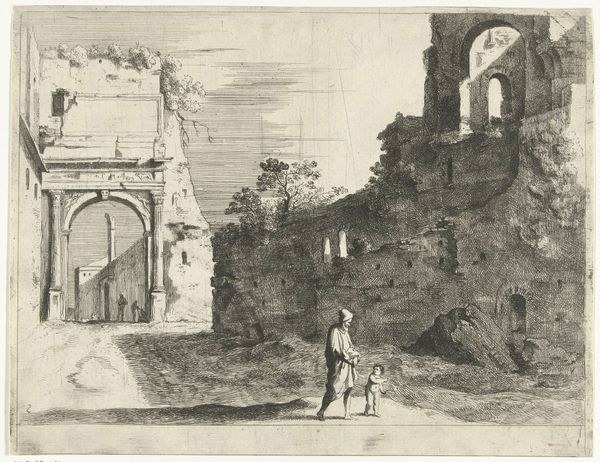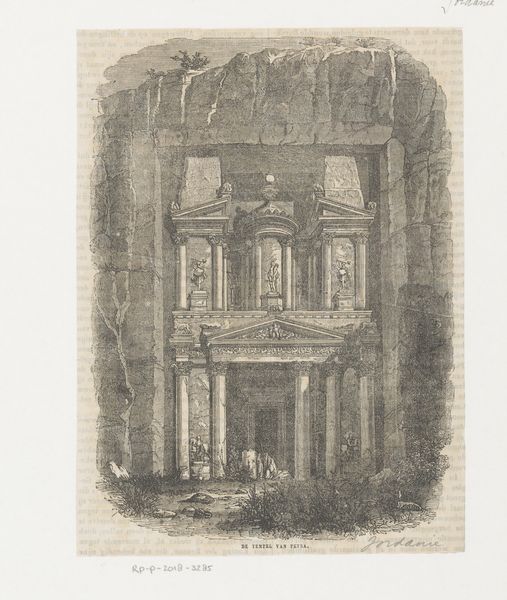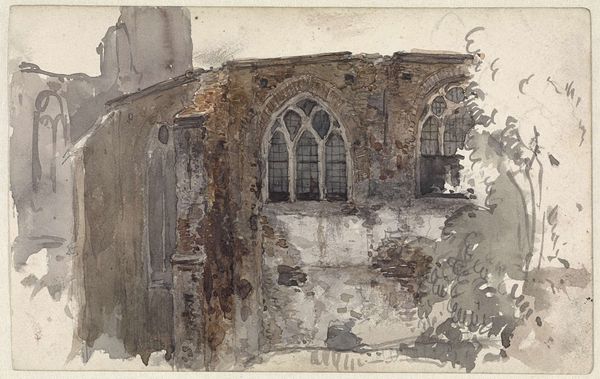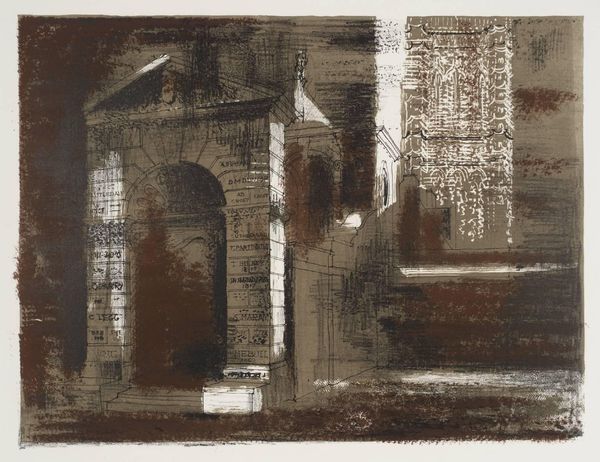
Gezicht op de bouwvallen van het koor van de Grote Kerk te Zandvoort 1685 - 1735
0:00
0:00
abrahamrademaker
Rijksmuseum
drawing, paper, ink, architecture
#
drawing
#
baroque
#
landscape
#
etching
#
paper
#
ink
#
architecture
Dimensions: height 153 mm, width 246 mm
Copyright: Rijks Museum: Open Domain
Editor: This drawing from between 1685 and 1735 by Abraham Rademaker, titled "View of the Ruins of the Choir of the Grote Kerk in Zandvoort," is rendered in ink on paper. I'm struck by how desolate the scene is. What stories do you think these ruins whisper about the past? Curator: This work resonates with themes of time, loss, and perhaps even resilience. Considering Rademaker was working during the Baroque period, when there was widespread colonialism, the drawing serves as a powerful reminder of impermanence and challenges of faith in the face of oppression. We can understand this ruin as more than a building: perhaps it symbolizes a societal structure. Editor: So, the ruins invite us to contemplate change and maybe even the failures of previous generations. Do you see any signs of hope or potential renewal in the artwork? Curator: Absolutely. Notice the meticulous detail in the drawing. While depicting destruction, it also immortalizes the site, allowing future generations to reflect on its history. What does the act of documentation mean for how we contend with a crumbling world? Is the meticulous detail a form of preservation? The drawing may suggest that even amidst decay, there’s potential for re-evaluation and perhaps a building of something new, a more equitable, ethical architecture. Editor: It's fascinating to consider how an image of ruins can spark conversations about social change. Thank you for highlighting that. Curator: It's been enlightening to explore the intersection of art and social consciousness with you.
Comments
No comments
Be the first to comment and join the conversation on the ultimate creative platform.
